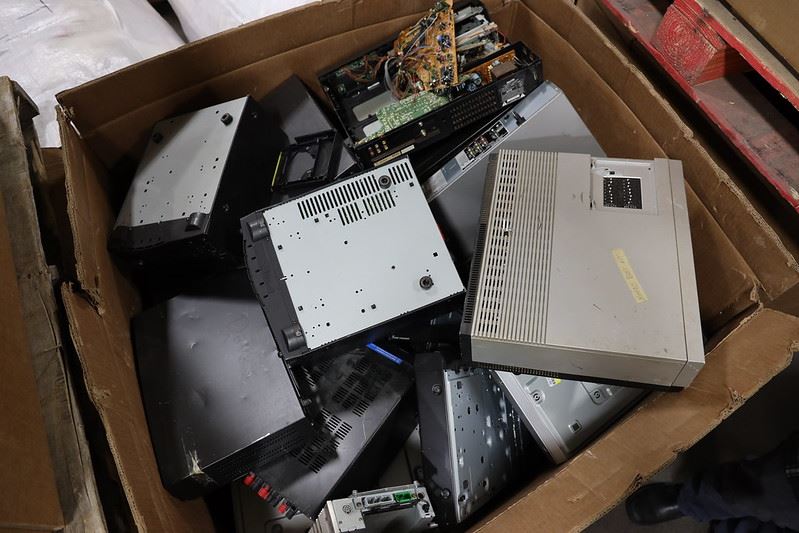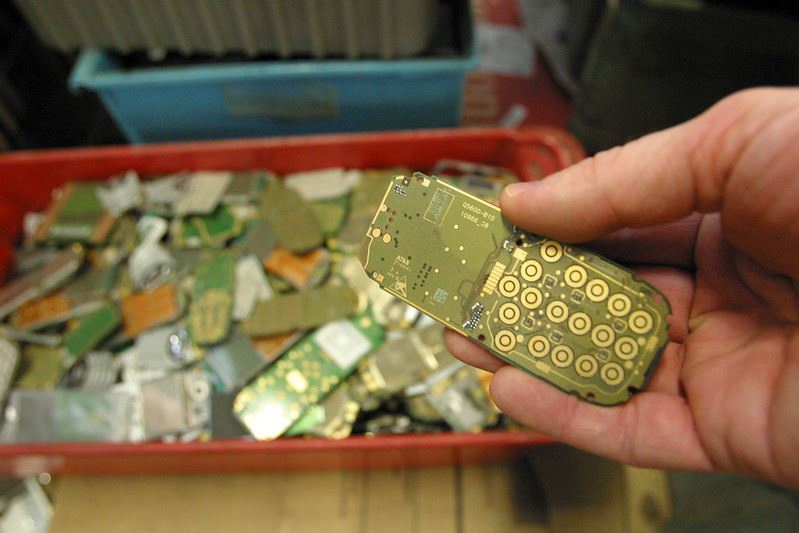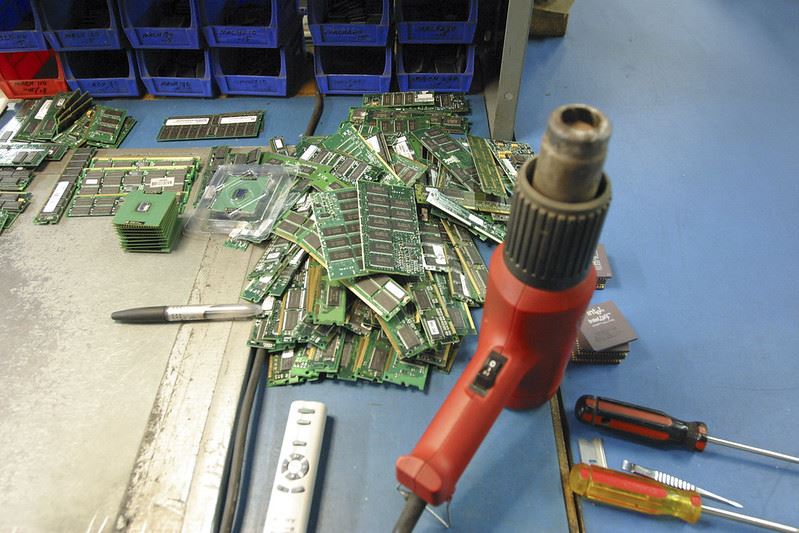
E-waste is the fastest growing waste stream in the world. Technology has become essential in personal and professional settings. Therefore, consumers, businesses, and policy-makers must be informed and engaged with proper e-waste management—and more importantly how to reduce the waste to begin with.
According to The World Counts, the world produces 50 million tons of e-waste annually. This type of waste comprises 70% of all toxic waste and only about 12.5% of it is recycled. E-waste, regardless of where it is disposed, poses significant threats to public health and is proving to be a severe international challenge. But as with any challenge, comes an opportunity to make effective and impactful changes that everyone can take part in.
This global issue requires a global response, particularly from the top three countries of e-waste generation: China, the United States, and India. Circular economics have been receiving more attention and implementation in recent years as a counter to the traditional “take-make-waste” model. The Circular Economy Practitioner Guide can be found here. While committing to supporting local circular economies can seem daunting, the three R’s of sustainability make it easy!
 The first and most important step to slowing the production of e-waste is to reduce!
The first and most important step to slowing the production of e-waste is to reduce!
-
Only replace electronics when necessary: Unnecessarily purchasing electronics can be costly, for you and the environment! Instead of upgrading every couple of years, consider investing time in taking care of your devices. The New York Times posted an article with some useful tips and tricks of doing just that!
-
Buy tech with good reviews that are built to last: When it is time to make a needed upgrade, take the time to do research as a consumer. What are the reviews saying about the product? Does the manufacturer have a reputation for producing durable and long lasting products? Taking the time to thoroughly research your options will save you money down the road and will help reduce e-waste!
-
Look into warranty information and accessibility/right to repair: Another thing to consider when purchasing a new device is the duration and quality of the warranty policy and if the manufacturer supports you right to repair your items. You can learn more about the electronics repair industry from The Repair Association.
The next best thing in doing your part to minimize e-waste is to consider reuse! Here are some things to consider:
-
Fix it before replacing it: If your technology is on the fritz, consider taking it to a local business that can refurbish it. Fixing products is cheaper and requires fewer materials than buying new ones. More often than not, malfunctioning technology has many years left once it is properly fixed. Tech Fixers in Shakopee are a great place to get your electronics repaired!
-
Refurbish: With changing demands of the home and the workplace, some technology needs to be replaced eventually. That’s ok! But instead of tossing the old tech in the trash, find a nearby business that will take the products to refurbish and resell.
-
Consider buying second-hand/refurbished items: If you are in the market for a new laptop or cell phone, consider buying used/refurbished products. In addition to being far more affordable, you will help support circular economics in your community and reduce the costs of production for a new product. Businesses can also take part in purchasing second-hand. Head to Alta Tech to look through their services and opportunities!

Eventually electronics reach the end of their life. While they may not be worth much to us at this point, it is important to dispose of e-waste responsibly. You can do this by recycling!
Electronics of any kind cannot be recycled in regular single-sort recycling.
Electronics must be taken to a county dropsite that accepts electronics or an organization that specializes in properly managing e-waste. We are fortunate in the Twin Cities area to have many reuse businesses who are committed to this type of work—like Repowered!
It is important to properly manage e-waste for many reasons:
-
Unwanted electronics, especially those containing lithium batteries, can start fires in local recycling centers.
-
Electronics, as they break down, release many toxic chemicals and metals into the surrounding environment—a serious threat for nearby communities.
-
Recycling electronics allows for the opportunity to capture and reuse rare metals and materials, lowering the demand for mining of precious metals.
Photos: Minnesota Pollution Control Agency/Flickr
